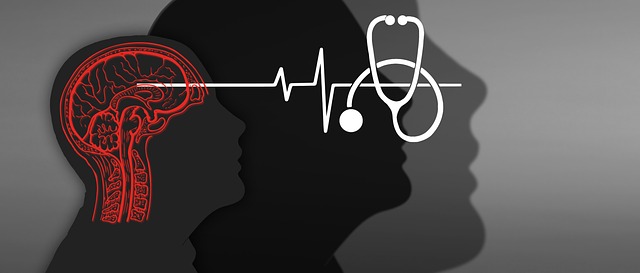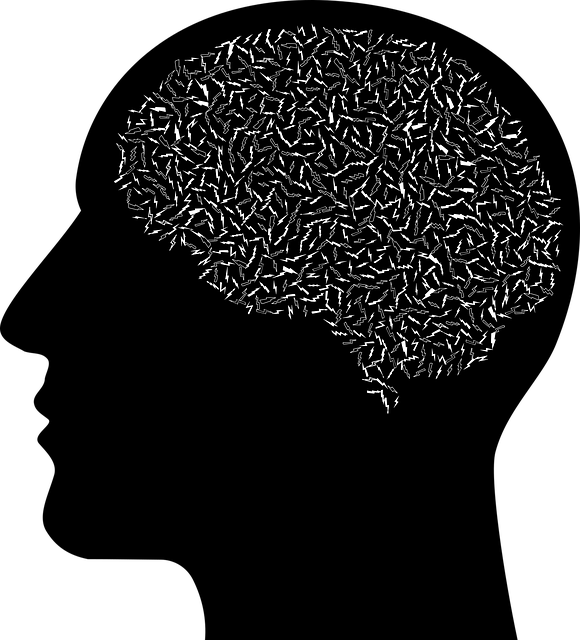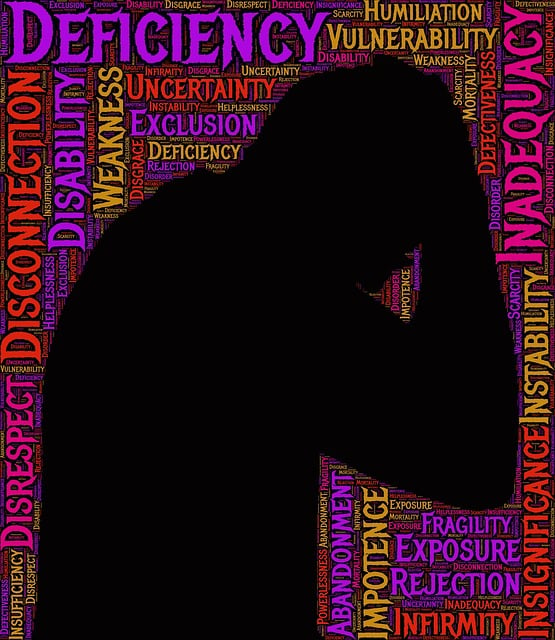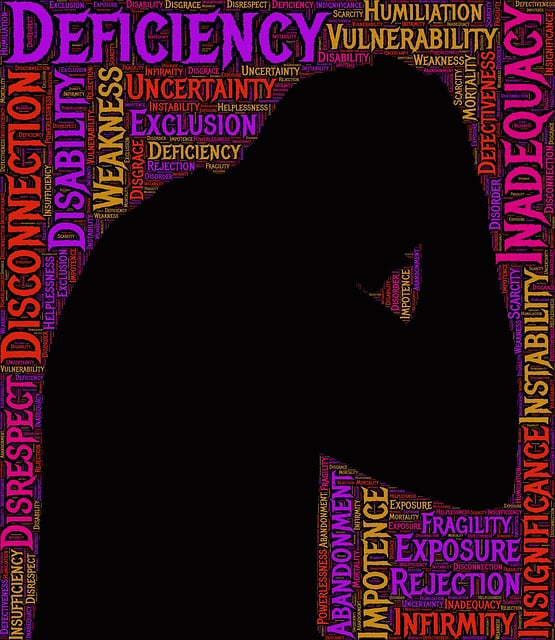The text discusses the significant impact of stigma on individuals with mental illnesses, particularly eating disorders, hindering access to treatment. Parker Eating Disorders Therapy addresses this by offering specialized care, combining CBT and mindfulness, to promote self-acceptance and resilience. They advocate for stigma reduction through awareness, education, and policy changes, utilizing recovery stories to humanize experiences. Long-term strategies include early intervention, advocacy, and healthcare professional well-being to foster a supportive community environment.
Mental illness stigma remains a significant barrier to access and treatment, negatively impacting those seeking support. This article explores targeted efforts to reduce this detrimental social construct, focusing on strategies that have proven effective in fostering understanding and acceptance. We delve into the multifaceted approach, including education, specialized therapy like Parker Eating Disorders Therapy, and the power of personal narratives. By examining these initiatives, we aim to illuminate paths towards a more inclusive society where individuals can pursue healing without fear of stigma.
- Understanding Stigma and its Impact on Mental Health Seekers
- The Role of Education in Breaking Down Stigma
- Parker Eating Disorders Therapy: A Safe Space for Healing
- Empowering Voices: Stories of Recovery and Resilience
- Strategies for Sustaining Progress and Continuing Support
Understanding Stigma and its Impact on Mental Health Seekers

Stigma surrounding mental illness is a significant barrier to individuals seeking help and support for their well-being. It often manifests as negative attitudes, beliefs, and stereotypes about people with psychological disorders, creating an environment where those in need feel ashamed and isolated. This can be especially detrimental for individuals dealing with conditions like eating disorders, which require specialized care and understanding from healthcare providers. At Parker Eating Disorders Therapy, we recognize the profound impact stigma has on one’s willingness to initiate treatment.
Many people struggling with mental health issues avoid seeking professional help due to fear of judgment and rejection. The internalized shame and self-blame associated with certain conditions can make them reluctant to open up about their experiences. This delay in accessing therapy can lead to more severe symptoms and longer recovery periods. By raising awareness, promoting education, and advocating for changes in healthcare systems, efforts aimed at stigma reduction encourage individuals to embrace self-care routines and actively participate in workshops focused on stress management. Additionally, training healthcare providers’ cultural competency ensures that patients receive non-judgmental, empathetic care, fostering an environment where mental health seekers feel empowered to take charge of their well-being.
The Role of Education in Breaking Down Stigma

Education plays a pivotal role in breaking down the stigma surrounding mental illness, particularly conditions like eating disorders, as misapprehensions and fears often stem from lack of understanding. By integrating educational initiatives into community programs and schools, we can foster an environment where mental health is normalized, promoting empathy and support for those facing challenges. This involves open dialogues about various mental health conditions, their causes, symptoms, and effective coping skills development.
At Parker Eating Disorders Therapy, we recognize that education extends beyond the therapeutic setting. We advocate for inclusive learning experiences that teach not just about eating disorders but also stress reduction methods and conflict resolution techniques. Equipping individuals with these tools empowers them to navigate mental health conversations with confidence, dispel myths, and foster supportive networks. Through education, we can collectively shift societal perceptions, ensuring those struggling receive the help they need without fear of judgment or stigma.
Parker Eating Disorders Therapy: A Safe Space for Healing

Parker Eating Disorders Therapy stands as a beacon of hope and healing for individuals navigating the complexities of eating disorders. This specialized therapy provides a safe, supportive environment where clients can explore their relationship with food, body image, and emotional well-being. Through evidence-based practices, therapists employ techniques such as cognitive behavioral therapy (CBT) and mindfulness meditation to empower individuals in managing their symptoms effectively. By addressing underlying causes and promoting positive coping strategies, Parker Eating Disorders Therapy fosters a sense of control and self-acceptance.
Beyond treating eating disorders, the clinic integrates stress management techniques into its holistic approach, recognizing that emotional well-being is intricately linked to overall health. This comprehensive strategy ensures clients gain not only physical but also mental resilience, enabling them to embrace life with renewed confidence and a deeper understanding of their own worth.
Empowering Voices: Stories of Recovery and Resilience

In the ongoing battle against mental illness stigma, sharing stories of recovery and resilience plays a pivotal role. These narratives from individuals who have successfully navigated challenges like eating disorders, facilitated by therapists like those at Parker Eating Disorders Therapy, offer powerful tools for change. By highlighting the humanizing aspects of mental health struggles and subsequent triumphs, these voices break down barriers and foster understanding.
Through their candid accounts, they not only destigmatize seeking help but also empower others to embrace their journeys. The act of sharing serves as a catalyst for Mental Health Awareness, encouraging open conversations and promoting empathy. Moreover, these stories often incorporate Conflict Resolution Techniques, showcasing the importance of managing difficulties with resilience and adaptability. Additionally, they inspire those facing similar challenges by demonstrating that recovery is achievable, ultimately boosting confidence in one’s ability to persevere.
Strategies for Sustaining Progress and Continuing Support

To sustain progress and continue support for mental illness stigma reduction, various strategies must be implemented and maintained over time. One key approach is Parker Eating Disorders Therapy, which focuses on early intervention and personalized treatment plans. This not only helps individuals manage their conditions effectively but also promotes understanding and empathy within communities.
Moreover, integrating Mental Health Policy Analysis and Advocacy into stigma reduction efforts ensures that systemic barriers are addressed. Policies that advocate for better access to mental health services, educate the public, and promote inclusive practices can significantly impact societal attitudes. Complementing these initiatives, Burnout Prevention strategies among healthcare professionals are crucial. Burnout contributes to stigma and reduces the quality of care; thus, regular support, self-care guidance, and Mental Wellness Journaling Exercise can help maintain a healthy work-life balance and mitigate burnout effects.
Mental illness stigma reduction is a multifaceted approach, as demonstrated by the diverse strategies explored in this article. From education initiatives that foster understanding to personal narratives of recovery, each contributes to breaking down barriers. Organizations like Parker Eating Disorders Therapy play a vital role in creating safe spaces where individuals can heal and find support. By combining therapeutic practices with empowered storytelling, we can continue to dismantle the stigma surrounding mental health, ensuring those in need receive the care they deserve.














